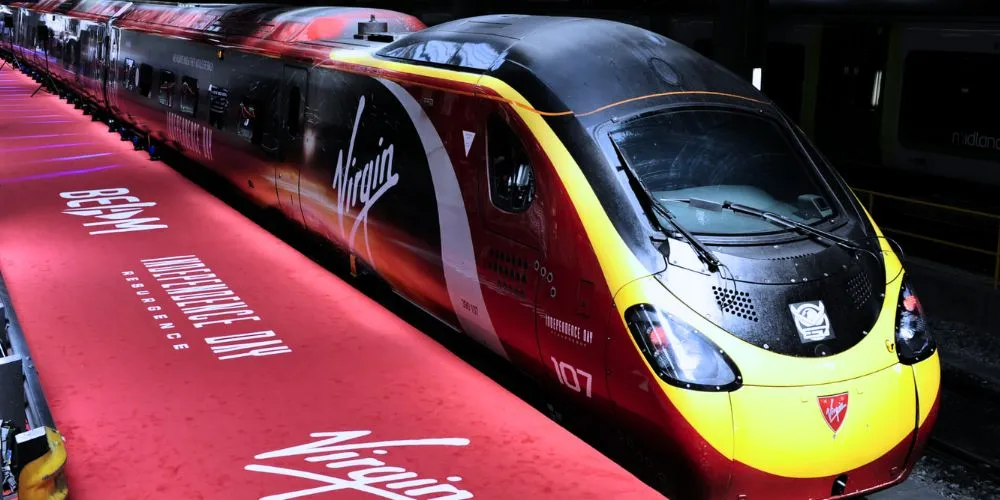Key Points
- Virgin Group plans to raise 700 million pounds to fund new cross-channel rail services connecting London with Paris and Brussels.
- The funding strategy includes 300 million pounds in equity and 400 million pounds in debt. Virgin intends to be a cornerstone investor in the project.
- The proposed service aims to directly compete with Eurostar’s 30-year-old network, offering high-frequency journeys.
- The initiative is expected to launch by 2029, pending successful financing and infrastructure development.
British billionaire Richard Branson’s Virgin Group is moving to re-enter the rail transport market with plans to launch high-frequency cross-channel rail services connecting London with Paris and Brussels, with potential expansion to Amsterdam. The company revealed its ambitious plan on Sunday, stating it aims to raise 700 million pounds (approximately $900 million) to fund the project. Virgin intends to secure 300 million pounds through equity and 400 million pounds in debt, and it plans to serve as a cornerstone equity investor in the initiative.
Virgin, which previously operated intercity train services in Britain, targets a direct challenge to Eurostar’s longstanding 30-year-old network. The proposed service is designed to offer more frequent journeys across the English Channel, promising improved convenience for travelers compared to the existing option. The company believes increased competition on this popular route is overdue and would benefit consumers and Europe’s broader rail transport market.
A spokesperson for Virgin Group commented that “the cross-Channel route is ripe for change and would benefit from competition.” While the firm is not yet committing to an immediate launch, it actively seeks investment from like-minded partners to join the venture. The project is expected to be ready to launch as soon as 2029, pending successful financing and completion of necessary infrastructure developments.
The news follows earlier reports by the Financial Times, and Eurostar has expressed a welcoming stance toward developing additional rail services in Europe. The company noted that increased competition in the high-speed rail sector indicates growing demand for rail transport across the continent.
The proposed investment marks one of the largest foreign investments in the U.K. rail market and represents a significant shift in the competitive landscape. Virgin’s entry into cross-channel rail services could redefine travel between key European cities, offering consumers more choices and potentially driving service quality and efficiency improvements.




